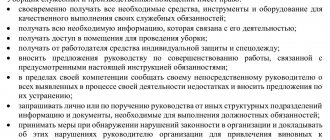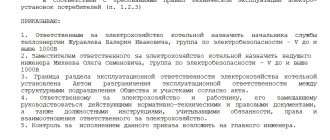Who is a teacher
The profession of a teacher came to us from ancient times and for many years the job responsibilities of a teacher in a school were reduced to the need to teach, educate and observe ethics. This specialty is complex and responsible, requiring qualified training and the presence of the following personal qualities:
- love and tolerance for children, even the most difficult ones, the ability to find an approach to any child;
- the ability to make quick and correct decisions in any stressful situations;
- communication skills, cheerfulness and organization;
- high cultural level, competent speech and psychological stability.
The specified rights and obligations of the teacher in the law on education are prescribed in the job description and are subject to mandatory compliance. To work as a teacher, you must have a pedagogical education obtained at a college or pedagogical university.
What qualities should a school teacher have?
In terms of the duties performed, the activities of a school teacher are multifaceted. In order to work, a teacher must have the following personal qualities:
- organizational skills (the ability to organize a class, build harmonious, trusting relationships between students);
- didactic abilities (the ability to prepare material for classes, correctly present information to students);
- communication skills (the ability to build long-term relationships with children, parents, colleagues).
A school teacher must be well versed in the psychology of children, see the problems of schoolchildren and help cope with them, look for an individual approach to each student (in teaching and upbringing). A teacher is an example of behavior for students, so the teacher’s task is to positively influence students and develop high moral qualities in students.
What regulations stipulate the rights and responsibilities of teachers?
Federal Law No. 273-FZ dated December 29, 2012 (as amended on July 3, 2016) “On Education in the Russian Federation” defines the rights and obligations of teachers in Article No. 47 “Legal status of teaching staff. Rights and freedoms of teaching staff, guarantees of their implementation.” The legislation states which document reflects the job responsibilities of teaching staff in an educational institution - the job description and charter of the school. Teachers have the right:
- express your opinion and teach subjects according to your own developed forms of teaching;
- choose your own textbooks and manuals for more effective learning;
- use for free the full range of auxiliary resources (libraries, textbooks, databases, museum collections, information resources);
- develop original programs and new teaching methods;
- conduct scientific work and take part in experimental programs;
- unite in professional organizations on a voluntary basis and participate in discussions of issues related to learning processes.
How to become a school teacher
To become a school teacher, you need to obtain a pedagogical education, since there are certain standards in teaching, without which it is impossible to qualitatively transfer knowledge to the younger generation. A diploma from a pedagogical college allows you to work as a primary school teacher (training lasts 3-4 years). You can get a job as a teacher in a school subject after graduating from a higher educational institution (4-6 years).
The responsibilities of a primary, middle and high school teacher include constant retraining, confirmation or advanced training. This is necessary, as it allows you to gain new knowledge and introduce modern training programs.
Many teachers receive additional education remotely and take courses to deepen their knowledge and improve their skills.
Teachers who perform their job with distinction in the school are eligible for promotion. This rule also applies in the opposite direction - the school director can again work with children as a teacher. A teacher's career directly depends on professional growth. A teacher of the highest category with work experience has the right to apply for the position of head teacher or director in his school.
What are the functions of a teacher?
Considering the functional responsibilities of a teacher, we note that they are regulated by the professional standard “On approval of the professional standard Teacher (pedagogical activities in the field of preschool, primary general, basic general, secondary general education) (educator, teacher)”, approved by Order of the Ministry of Labor of Russia dated October 18, 2013 No. 544n (as amended on 05.08.2016) and registered with the Ministry of Justice of Russia on 06.12.2013 No. 30550. The professional standard defines the basic requirements for the profession and indicates the tasks that are set for the teacher:
- training according to an approved program;
- implementation of educational and developmental activities;
- compliance with legal, moral and ethical standards, requirements of professional ethics;
- conducting pedagogical activities in the design and implementation of basic educational programs, programs of primary general education, basic and secondary general education.
The structural divisions of the evening school are the educational and consulting center, in which teachers provide the opportunity to master the school curriculum based on the following forms of education:
- full-time;
- correspondence;
- part-time (evening);
- in the form of self-education;
- external studies;
- distance learning.
Where to look for a job as a teacher
Many students go to work at school while studying part-time for a master's degree. Some of them choose educational institutions from which they themselves graduated. You can look for a job by independently visiting various public and private schools and offering your candidacy by browsing online sites with current vacancies.
Some students remain to work in schools where they completed their teaching practice (in the 3rd year of the institute). For this option to work, you need to prove yourself as a qualified employee during practice (show all your skills and abilities in order to earn the respect of other teachers).
You must look for a job during the academic year (until May)
, since in the summer the employer may be on vacation. Young professionals without work experience, but with a diploma, can also get a place in the school, since it is impossible to become a school teacher without it.
How much do school teachers earn?
In Russia, a school teacher’s salary consists of the number of hours worked, qualifications, and additional duties (class management, etc.). The teacher’s salary is influenced by the region, the choice of educational institution (public or private school, lyceum, etc.), specialization (how rare and in demand the subject of study is).
This profession is in great demand
, according to specialist search sites, at the standard teacher rate, a school requires workers with a salary of 20 to 50 thousand rubles.
It is not always possible to find out how much a teacher’s working day costs and how many hours you need to work to get one teacher’s salary at a school. But the Labor Code states that a teacher cannot work more than 36 hours a week. A shortened working week is established by law. It turns out that a school teacher’s output per hour in hours cannot exceed 7.2 hours a day.
You can find out how much teachers are paid at a school on any employee search website, at an employment center, or at the school itself.
What rights does he have?
The rights and responsibilities of a teacher in the classroom, at school, and in extracurricular activities are determined by the federal law “On Education”. The teacher has the right to:
- receiving social guarantees and benefits under the legislation of the Russian Federation;
- making proposals to improve the educational process;
- selection of teaching aids and teaching methods;
- taking part in decisions of the teachers' council and other governing bodies;
- familiarization with draft decisions of the school management concerning its activities;
- nominating oneself for an elective position in the pedagogical council;
- provision of organizational and technical conditions necessary for the performance of official duties;
- protection of honor and dignity.
Professional requirements for a school teacher
When hiring a teacher, the employer pays attention to the following:
- experience;
- education;
- category (young specialist, first or highest category);
- qualification;
- discharge;
- personal qualities.
A detailed resume allows the manager to evaluate the future employee and determine what duties the teacher will be able to perform at the school. The more involved a teacher is in school life, the higher his salary.
What are the responsibilities
Order of the Ministry of Health and Social Development of the Russian Federation dated August 26, 2010 No. 761n (as amended on May 31, 2011) “On approval of the Unified Qualification Directory of Positions of Managers, Specialists and Employees” determines what are the responsibilities of a teacher:
- provision of training and implementation of the curriculum;
- planning educational material and conducting classes in your subject;
- analysis of progress and adjustment in accordance with the results;
- ensuring discipline and monitoring compliance with safety rules;
- developing independent work skills and studying the individual characteristics of students;
- checking the mastery of the material covered, assessing the effectiveness of methods and adjusting work to achieve results;
- preparation of documentation, keeping journals, diaries, including electronic ones.
The job responsibilities of a teacher according to the Federal State Educational Standard (FSES) boil down to:
- accurate fulfillment of the requirements for mastering the educational program;
- ensuring socialization, the formation of a common personal culture, conscious choice of programs by students within the framework of the Federal State Educational Standard;
- management and control over the development of the educational process.
In addition to the main ones, the job responsibilities of a labor safety (OHS) teacher are supplemented by the following responsibilities:
- providing instruction to students and ensuring workplace safety;
- monitoring the condition of educational equipment;
- provision of necessary medical care;
- responsibility for accidents that occur during the educational process.
Job description for a middle and high school teacher
General provisions
1.1. A school teacher is appointed and dismissed by order of the school director from among persons with higher or secondary specialized education.
1.2. In his activities, the teacher is guided by the Constitution of the Russian Federation, the Law of the Russian Federation On Education, the standard regulations “On Educational Institution”,
decrees of the President of the Russian Federation, decisions of the Government of the Russian Federation and educational authorities of all levels on issues of education and upbringing of students;
administrative, labor and economic legislation;
rules and regulations of labor protection, safety and fire protection, as well as the Charter and local legal acts of the school (including internal labor regulations, orders and directives of the director, this job description), employment agreement (contract).
The teacher complies with the Convention on the Rights of the Child.
1.3. The teacher must know:
Constitution of the Russian Federation;
laws of the Russian Federation, decisions of the Government of the Russian Federation and educational authorities on educational issues;
Convention on the Rights of the Child;
fundamentals of general theoretical disciplines to the extent necessary to solve pedagogical, scientific-methodological and organizational-management problems, pedagogy, psychology, developmental physiology, school hygiene;
methods of teaching the subject and educational work;
programs and textbooks;
requirements for equipment and equipment of classrooms and utility rooms;
teaching aids and their didactic capabilities;
main directions and prospects for the development of education and pedagogical science;
fundamentals of law, scientific organization of labor, safety and fire protection.
2. Job responsibilities of a teacher
2.1.Carries out training and education of students taking into account the specifics of the subject being taught, conducts lessons and other activities in accordance with the schedule in the specified premises.
2.2. The teacher is required to have a thematic work plan for the subject in each parallel of classes for the academic quarter and a work plan for each lesson.
2.3. Responsible for the implementation of orders “On labor protection and compliance with safety regulations” and “On ensuring fire safety”:
safe conduct of the educational process;
taking measures to provide first-aid to the victim, promptly notifying management about the accident;
instructing students (pupils) on labor safety during training sessions, educational events with mandatory registration in the class register or the “Journal of student briefing on labor protection and safety”;
organizing the study by students of rules on labor protection, traffic safety, behavior at home, etc.;
monitoring compliance with labor protection rules (instructions).
2.4. Maintains educational documentation in the prescribed manner, carries out ongoing monitoring of students’ progress and attendance in lessons, submits current grades to the class journal and diaries, and promptly submits the necessary reporting data to the administration.
2.5.Works on the examination committee for the final certification of students.
2.6. In accordance with the Charter of the institution, admits the school administration to its lessons in order to monitor the work.
2.7.Replaces lessons for absent teachers by order of the administration.
2.8. Complies with the institution’s Charter, Collective Agreement, Internal Labor Regulations, the requirements of this instruction, as well as local acts of the institution, orders and instructions of the institution’s administration.
2.9. Complies with the rights and freedoms of students contained in the Law of the Russian Federation “On Education”, the Convention on the Rights of the Child.
2.10. Communicates with parents of students (or their legal representatives).
2.11.Systematically improves his professional qualifications. Participates in the activities of methodological associations and other forms of methodological work.
2.12. In accordance with the annual work plan of the institution, he takes part in the work of pedagogical councils, production meetings, meetings with the director, parent meetings, as well as subject sections held by a higher organization.
2.13. In accordance with the school duty schedule, he is on duty during breaks between lessons. As a class teacher, he is periodically on duty with his class around the school. Arrives on duty 20 minutes before classes start and leaves 20 minutes after they end.
2.14. Periodically undergoes free medical examinations.
2.15. Complies with ethical standards of behavior and is an example for students and pupils.
2.16.Participates in work with parents of students, attends meetings at the request of class teachers.
2.17. Immediately informs the school administrator about accidents and takes measures to provide assistance to the victims.
2.18. The teacher teaching the last lesson in the class escorts the children to the wardrobe and keeps order.
2.19. If the student’s meal schedule coincides with the end of the lesson, then he is obliged to take the class to the dining room and hand it over to the class teacher or exercise control himself.
2.20.When leaving school, he looks at and brings to the attention of students changes in the schedule for the next day.
2.21.No later than the first day of the month, he must submit a deputy. Director schedule of control and laboratory work for a month.
2.22. The teacher is prohibited from:
change the class schedule at your discretion;
cancel, extend or shorten the duration of lessons (classes) and breaks between them;
remove a student from a lesson;
smoking on school premises.
2.23. When the teacher performs the duties of the head of the classroom, the teacher:
carries out certification of his office;
constantly replenishes the classroom with teaching aids necessary for completing the curriculum, instruments, and technical teaching aids;
organizes work with students on the production of visual aids;
in accordance with the director’s order “On Conducting an Inventory”, writes off property that has become unusable in accordance with the established procedure;
develops labor protection and safety instructions;
takes part in the inspection of classrooms.
2.24.Teacher:
2.24.1. Monitors the availability of notebooks on the subject for students, compliance with the order of their design and maintenance established in the school, and compliance with a unified spelling regime. Follows the following procedure for checking student workbooks: notebooks of all students in all classes are checked at least once or twice per academic quarter.
2.24.2. Submits grades for students’ creative works, essays, reports, etc. in class journals.
2.24.3. Stores students’ creative works in the classroom throughout the year.
2.24.4. Organizes, together with colleagues, the holding of school Olympiads in the subject and, if possible, extracurricular activities in the subject.
2.24.5. Forms school teams based on parallel classes to participate in district, city, and regional competitions.
2.24.6. Works together with the school librarian and parents to organize extracurricular reading for students.
2.24.7.Takes part in organizing the work of students in the school museum.
2.24.8. Provides all possible assistance in organizing tourism and local history work at the school.
3.Teacher rights
3.1. A teaching employee has the rights provided for by the Labor Code of the Russian Federation, the Law of the Russian Federation “On Education”, “Standard Regulations on a General Educational Institution”, the School Charter, the Collective Agreement, and the Internal Labor Regulations.
3.2. To make decisions that are binding on students and take disciplinary measures in accordance with the Charter of the institution.
3.3.For advanced training. For these purposes, the administration creates the conditions necessary for the successful training of workers in institutions of the retraining and advanced training system.
3.4. To be certified on a voluntary basis for the appropriate qualification category and receive it in case of successful completion of the certification.
3.5. For a shortened working week, for extended paid leave, for receiving a long-service pension, social guarantees and benefits in the manner established by the legislation of the Russian Federation.
3.6. For a long (up to 1 year) vacation at least every 10 years of continuous teaching work. The procedure and conditions for granting leave are determined by the founder and (or) the Charter of the educational institution.
3.7. For additional benefits provided in the region to teaching staff of educational institutions.
3.8. To participate in the management of a general education institution in the manner determined by the Charter of this institution.
3.9. To protect professional honor and dignity.
4.Responsibility of the teacher
4.1.For the implementation of educational programs not in full;
4.2.For the life and health of students during the educational process and extracurricular activities conducted by the teacher;
4.3. For violation of the rights and freedoms of students defined by the legislation of the Russian Federation, the Charter and local acts of the institution.
4.4. In case of violation of the institution’s Charter, the terms of the collective agreement, the internal labor regulations, this job description, or the director’s orders, the teacher is subject to disciplinary action in accordance with Article 192 of the Labor Code of the Russian Federation.
4.5. For the use of educational methods associated with physical and (or) mental violence against the student’s personality, the teacher may be dismissed under Art. 336, clause 2 of the Labor Code of the Russian Federation.
Similar articles:
Job descriptions → Job description of a watchman
Job descriptions → Job description of a watchman (day)
Job descriptions → Job description of a librarian
Job descriptions → Job description of a school administrator
Job Descriptions → Driver Job Description
What is he responsible for?
The official and functional duties of a teacher are subject to mandatory fulfillment and the employee bears disciplinary, administrative and criminal liability for failure to fulfill them, including for:
- preserving the life and health of children;
- compliance with safety and labor protection instructions;
- the use of unacceptable methods of education, violence and rudeness;
- for inappropriate performance and failure to perform their work;
- failure to provide timely medical care and concealment of an accident;
- abuse of authority.
Control
Each teacher can also participate in the management of the school. And for this you don’t have to be, say, a director. True, you should not expect that you will be given a say in solving some school issues.
Why? Participation in school management is regulated by the charter. And it is different in every educational institution. Somewhere the teacher is given such a right, but somewhere not. Practice shows that school management is often entrusted only to distinguished teachers and management. The main thing is to spell it out in the charter. If there is nothing like that, then any teacher can participate in the management of the school.
Security
A teacher's job responsibilities are not just about teaching something. They also mention the protection of children during school hours. You must ensure their safety. And let you go home only after finishing classes.
During the educational process, all responsibility for the life and health of students lies on the shoulders of the teacher. And therefore it is important to ensure that there is no danger nearby. If a child gets injured during a lesson, parents may complain against you. Of course, you cannot keep track of every child, but you must somehow cope with this. Failure to comply with this obligation will result in punishment. Up to trial and arrest. The only exceptions are those cases when you can prove that the child put himself in danger and did it intentionally.
And one more thing. If a child takes time off from class, you do not have the right to let him go unaccompanied. Only if the student calls his parents in front of you and they allow you to do this. This point also applies to security. After all, if something happens to a student on the way home, then you will be to blame.
Socialization and culture
Perhaps there is one more area that is included in the job responsibilities of a modern teacher. This is especially true for younger grades. And cases when new students from other schools come to you. What are we talking about?
On the socialization of children. Teachers will have to teach it. After all, it is at school that children should learn to communicate, contact each other, find a common language, and so on. And the teacher is obliged to facilitate all this. Adapting your child to a new class and society is also your responsibility, according to the education law.
As you can see, a modern teacher does not have as many rights as mandatory points. In principle, this does not mean that you will be powerless. Simply knowing what you are entitled to and what you are not is enough. Do not violate the rights of students and parents, comply with the school charter, and also educate your students morally and spiritually. Develop and improve. Then you won't have any problems. If your rights are regularly violated, feel free to contact the Ministry of Education. But first, try to resolve the issue within the school. And if this was not possible, stock up on evidence of violation of your rights and feel free to contact the relevant authorities.








